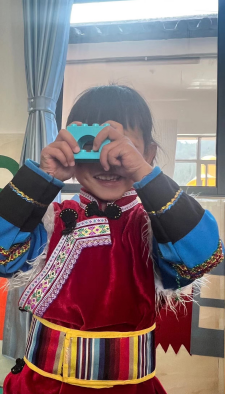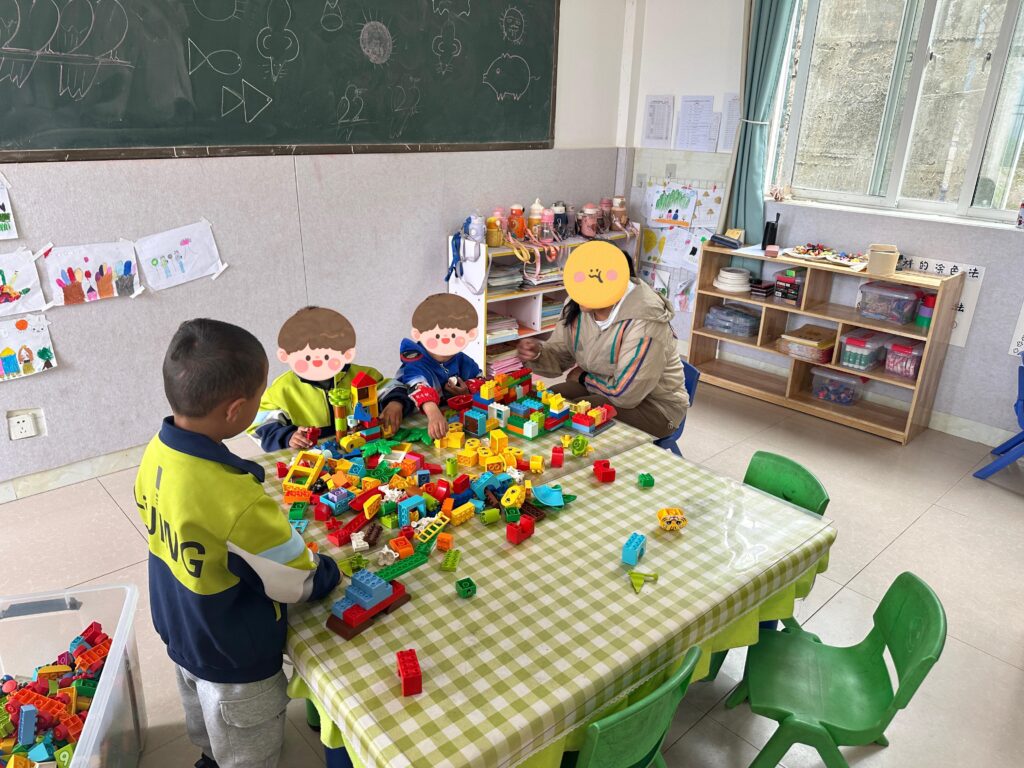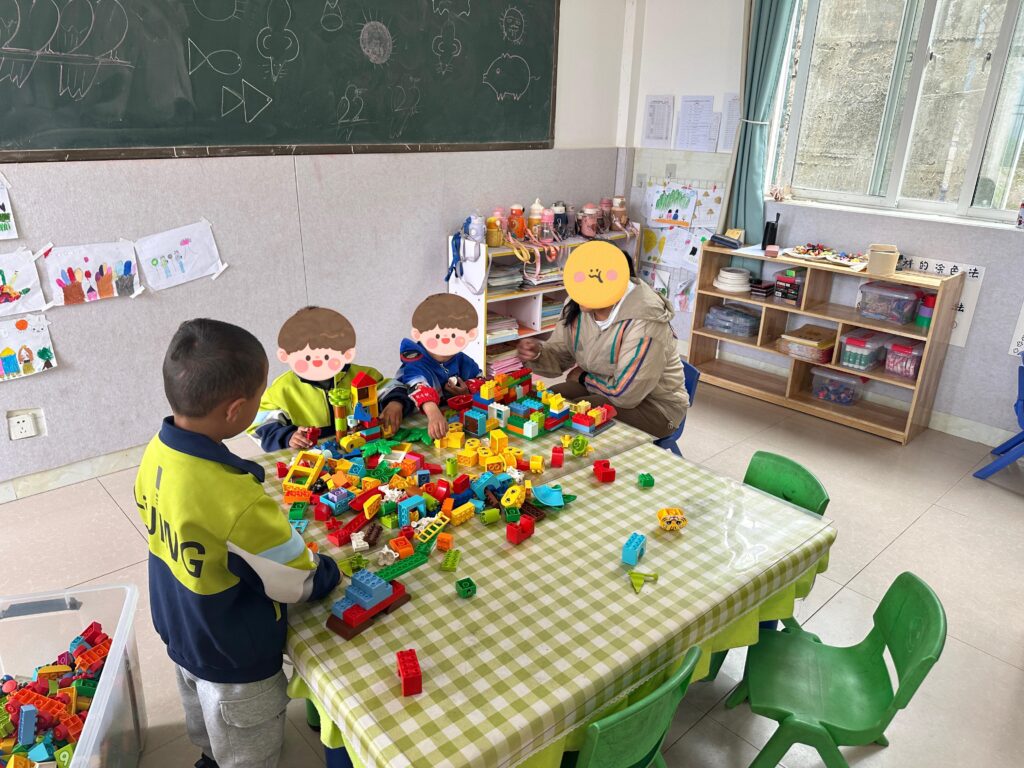EECERA Conference 2025 – Guest Blog # 51: LEGO® Bricks and Mentoring
Posted 26th August 2025
One of a series of short blog posts by presenters who will be sharing their work at the upcoming annual conference in Bratislava, Slovakia. Any views expressed in this post are those of the author(s) and do not necessarily reflect the official stance of their affiliated institution or EECERA.
Leveraging LEGO Bricks and mentoring program to Promote the Most Disadvantaged Young Children’s Development: An Empirical Study
By Ms. Xingyu Wang, Beijing Normal University, China and Prof. Minyi Li, Beijing Normal University, China

Picture this: a four-year-old girl in Lanping county, from the Lisu ethnic minority, pretending to take a picture of our research group, during a visit to her classroom.
Research Motivation
“Can play be a viable developmental intervention in resource-constrained early childhood education settings?”
This was the question we set out to explore in rural, ethnically diverse regions of southwest China.
Why LEGO?Why Mentoring? Why Here?
Since 2009, the China Development Research Foundation has implemented the “One Village, One Preschool” program to expand access to early education in remote villages. Between 2020 and 2024, 771 LEGO® Play Boxes were distributed to preschools in Nujiang Prefecture, Yunnan Province. These were accompanied by a light-touch teacher training model known as the Play Agent Workshop. In 2024, the program was further enhanced through a hybrid coaching intervention called En-PPROVEEYS, combining peer mentoring, online training, and on-site support to help teachers implement play-based pedagogy.
In these resource-constrained settings—often referred to as China’s “Three Prefectures,” where poverty rates are highest—we asked:
Can a play-based intervention promote measurable developmental gains for children?
What Did We Aim to Learn?
We aimed to examine how the LEGO® Play Box and teachers’ implementation of the materials influenced children’s development in three core domains:
1. Receptive vocabulary (language development)
2. Emotion comprehension (social-emotional skills)
3. Divergent thinking (creativity and imagination)
We also sought to understand:
• Who these interventions were reaching
• How teachers were engaging with the materials
• What usage patterns led to better outcomes

What Did We Do?
In our two-phase sampling design, we combined full-population coverage with stratified random sampling at the class level. This approach enabled both a comprehensive understanding of the county-wide preschool context and a rigorous foundation for evaluating intervention effects. We collected:
• 2,231 family demographic questionnaires
• 137 teacher implementation surveys
• Direct assessments from nearly 500 children using standardized tools:
• PPVT for receptive vocabulary (n = 476)
• TEC for emotion comprehension (n = 477)
• A “special box” task to assess divergent thinking (n = 432)
We also documented the implementation of the En-PPROVEEYS hybrid mentoring model:
• Peer mentor-mentee dyads
• Online coaching workshops and reading clubs
• On-site classroom visits

What Did We Find?
• Most participating children came from low-SES households, often with caregivers who were migrant workers or had limited formal education.
• Home learning environments were generally unstimulating and low in verbal interaction.
• While Play Box use was frequent, it was mostly child-led free play with limited diversity.
However, teacher behaviors made a difference:
• Greater activity diversity was marginally associated with improved emotion comprehension (β = 0.149+, p < 0.1)
• Longer session durations predicted better creativity outcomes:
• Originality (β = 0.040*)
• Fluency (β = 0.027*)
What Does It Tell Us?
Our findings suggest that materials alone are not enough.
In under-resourced village preschools, teacher facilitation and sustained mentoring are key to unlocking the developmental value of play.
Key takeaways:
• Play is a right, not a privilege, even in remote or impoverished areas
• Teacher mentoring amplifies the value of play
• Intentional, supported use of materials improves outcomes
Join Us at EECERA 2025
In our presentation at EECERA 2025 in Bratislava, we will share:
• The design and implementation model of our LEGO® Play Box intervention
• Quantitative findings across all three domains of child development
• Contextual reflections from rural kindergartens in Yunnan’s mountainous regions
We welcome conversations with those working on playful learning, rural education, and early childhood systems in the Global.
Ms. Xingyu Wang will present work referred to in this blog in Symposium Set D15 | Wednesday 27th August 2025, 10:40 – 12:00. (Schedule liable to change; please refer to final programme for details).
